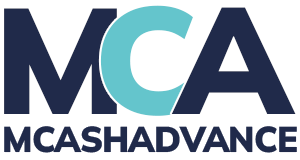
The MCA funding we offer provides fast access to capital when you need it most. However, it comes with higher costs, shorter repayment terms, and daily deductions that may not suit every business. If you’re looking for a more affordable option, here are ten proven alternatives worth considering in 2025.
We Want You to Choose the Right Option
We want you to choose the right business funding for your current circumstances. If a merchant cash advance (MCA) doesn’t make sense for your situation, we don’t want you to take one. That’s why we’ve outlined 10 solid alternatives to consider. Each comes with different terms, requirements, and repayment structures.
What Are Alternatives to a Merchant Cash Advance?
Below is a table highlighting the 10 most common alternatives to MCAs:
| MCA Alternative | Description |
|---|---|
| 01. Business Lines of Credit | Borrow only what you need and pay interest just on that. Great for ongoing cash needs. |
| 02. Bank Loans | Get low rates if your credit score is above 670. Pay back over 3 to 10 years. |
| 03. Online Lender Business Loans | Easy to get approved with a 580+ credit score. Rates can be higher, from 8.5% to 45%. |
| 04. Invoice Factoring | Turn unpaid invoices into quick cash. Service fees are 1% to 5% per invoice. |
| 05. Revenue-Based Financing | Get money now, pay back with a slice of future sales. Ideal if you have steady income. |
| 06. Asset-Based Loans | Use your business assets as loan security. Rates are competitive, between 5.25% and 15%. |
| 07. SBA Loans | Low rates and long payback times, but you’ll need to meet strict criteria. |
| 08. Business Credit Cards | Flexible credit for short-term expenses. Rates range from 18.5% to 28%. |
| 09. Equipment Leasing | Lease anything from machines to furniture. Pay monthly, with rates from 7% to 16%. |
| 10. Equipment Financing | Buy equipment and pay over time. You’ll own it at the end and can pay back over 3 to 5 years. |
How to Choose the Right Alternative
Start by asking a few quick questions.
- Do you need flexibility or a lump sum?
- Can you qualify with your credit score, revenue, or assets?
- Do you want to own equipment or lease it?
- Are you waiting on unpaid invoices?
- How fast do you need the funds?
These answers will help you match your situation to the right funding type below.
Revolving Credit Options
1. Business Line of Credit
A revolving credit facility where you borrow only what you need and pay interest on what you use. It is ideal for managing cash flow and fits businesses that experience short-term gaps. Funding can arrive in as little as 24 to 72 hours.
- Rates from 8% to 60%
- Typically requires a 600+ credit score
- May require collateral or a personal guarantee
2. Business Credit Cards
Business credit cards provide fast access to working capital. They are often overlooked as a funding option but are especially useful for small, recurring purchases. Most business cards do not require collateral, and you may qualify instantly if your credit score is strong. Keep in mind that interest rates are high if you carry a balance.
- Rates from 18.5% to 28%
- Requires a FICO score of 670 or above
- No collateral required
Fixed-Term Loans
3. Bank Loans
Bank loans offer some of the lowest-cost funding available if you qualify. You will need good credit, collateral, and time to go through the underwriting process. These are ideal for businesses planning long-term growth.
- Rates start around 6%
- Repayment terms from 3 to 10 years
- Requires a 670+ credit score and assets
4. SBA Loans
If you want the lowest cost possible and can wait several weeks for approval, SBA loans are often your best option. They offer extended repayment terms and are backed by the government, which lowers the lender’s risk. You will need to meet strict criteria including a solid credit score, collateral, a business plan, and a personal guarantee.
- Rates from 7% to 12.75%
- Requires a FICO score of 640 or above
- Takes 2 to 8 weeks to fund
5. Online Lender Business Loans
Online business loans are much faster than bank loans and easier to qualify for. Many providers accept credit scores as low as 580. These loans are ideal for businesses that do not qualify for traditional bank products and need capital within a few days. You may also use an online business loan to refinance an MCA.
- Rates from 8.5% to 45%
- Minimum FICO score of 580
- Funding in as little as 24 hours
Revenue-Tied Repayment Models
6. Revenue-Based Financing (RBF)
This model allows you to repay based on a percentage of your monthly revenue. It is helpful for businesses that have steady income but may not qualify for MCA due to low credit card sales. Most RBF providers do not require collateral. You can use RBF funding to cover operating costs or pay off an MCA.
- 2% to 10% of monthly revenue
- No fixed term
- Based on total revenue, not credit score
7. Invoice Factoring
If your business sends invoices on terms like Net-30 or Net-60, factoring can help you unlock that capital early. The factoring company buys your invoices at a discount and pays you upfront. This is one of the fastest funding options and does not require a credit check. Many business owners use factoring as a way to avoid high-cost MCAs.
- Fees from 1% to 5%
- Funding in 1 to 3 days
- No FICO score required
Asset-Backed Lending
8. Asset-Based Loans
You can use your inventory, real estate, receivables, or equipment as collateral to secure funding. If you are unable to qualify for a traditional loan, but your business has valuable assets, this option may give you better rates and longer terms than an MCA.
- Rates from 5.25% to 15%
- Based on asset value, not credit alone
- Funding within 1 to 2 weeks
9. Equipment Leasing
Leasing is ideal if you need access to equipment without committing to full ownership. You make monthly payments, often with little or no money down. Leasing helps preserve working capital and can be faster to set up than a loan.
- Rates from 7% to 16%
- Suitable for machinery, furniture, or vehicles
- Short approval times
10. Equipment Financing
If you prefer to own the equipment long-term, this option allows you to spread the purchase over several years. The equipment acts as its own collateral. You can also use equipment financing to pay off an MCA if the new loan gives you better terms.
- Rates from 4% to 30%
- Terms of 3 to 5 years
- Approval in 2 to 7 days
If you are unsure where to start, you can try getting approved for a business line of credit if you need flexible access to working capital. Look into invoice factoring if you are waiting on customer payments. Explore SBA loans if you’re focused on long-term growth at a lower cost. Use equipment financing if you are scaling through machinery or tools.
If you don’t qualify for any of the options above, we would be happy to see if you’re eligible for our MCA funding instead. We’re here to help you find the best fit for your business today, even if it isn’t with us.
Ready to Apply?
or learn more about merchant cash advance loans

